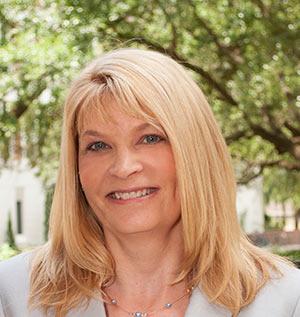
Ph.D., Information Systems, The University of Kansas, 2001
MBA, Avila College, 1996
B.A., Economics, California State University Long Beach, 1986
IT Workforce
Cognition and Learning
Technology and Change
Dr. Deborah J. Armstrong is a professor in the Department of Business Analytics, Information Systems and Supply Chain at Florida State University’s Herbert Wertheim College of Business. Her research interests cover a variety of issues at the intersection of IS personnel and cognition involving the human aspects of technology, change and learning. Her research has appeared in Management Information Systems Quarterly, Journal of Management Information Systems, the European Journal of Information Systems and Communications of the ACM, among others. Armstrong also serves as the co-editor in chief for The DATABASE for Advances in Information Systems.
She earned her bachelor’s degree in economics from California State University Long Beach and her MBA from Avila College. Armstrong has a Ph.D. in information systems from the University of Kansas.
Riemenschneider, C. K., and Armstrong, D. J. “The Development of the Perceived Distinctiveness Antecedent of Information Systems Professional Identity,” MIS Quarterly (forthcoming).
Lin, S. F., and Armstrong, D. J. (2019). “Beyond Information Privacy: The Role of Territory in Privacy Management Behavior in Online Social Networks,” Journal of the Association for Information Systems 20:4, pp. 434-475.
Armstrong, D.J., Riemenschneider, C.K., and Giddens, L. (2018). “The Advancement and Persistence of Women in the Information Technology Profession: An Investigation of Ahuja’s Model,” Information Systems Journal, Special Issue on Social Inclusion 28:6, pp. 1082-1124.
Armstrong, D.J., Brooks, J.G., & Riemenschneider, C.K. “Antecedents and Outcomes of Exhaustion from Information Systems Career Experience,” MIS Quarterly 39:3 (2015), 713-727.
Nelson, H.J., Armstrong, D.J., and Nelson, K.M. "Patterns of Transition: The Shift from Traditional to Object-oriented Development," Journal of Management Information Systems 25:4 (2009), 273–300.
Armstrong, D.J. and Hardgrave, B.C. "Understanding Mindshift Learning: The Transition to Object-Oriented Development," MIS Quarterly 31:3 (2007), 453-474.
Armstrong, D.J. "The Quarks of Object-Oriented Development" Communications of the ACM,49:2 (2006), 123-128.
Chilton, M., Hardgrave, B.C., and Armstrong, D.J. "Person-Job Cognitive Style Fit for Software Developers: The Effect on Strain and Performance," Journal of Management Information Systems, 22:2 (2005), 193-226.
Dr. Armstrong has been with Florida State University since fall 2007. She is originally from the Los Angeles area. After graduation, she worked as a cost and budget analyst in the defense industry then gravitated to the financial services sector before pursuing her Ph.D. in Information Systems. Dr. Armstrong says she works way too many hours and enjoys watching [FSU] sports to decompress. Go Noles!
Magid Igbaria Outstanding Conference Paper, SIGMIS-CPR 2014, 52nd ACM Conference on Computers and People Research. “The Barriers Facing Women in the Information Technology Profession: An Exploratory Investigation of Ahuja's Model.”
Best Paper Runner Up, Americas Conference on Information Systems, 2011. "The Perceived Uniqueness of the IS Profession: The Role of Gender."
Magid Igbaria Outstanding Conference Paper, 2006 SIGMIS Computer Personnel Research Conference, 2006. "Affective Commitment in the Public Sector: The Case of IT Employees."
Best in Track, Americas Conference on Information Systems, 1999. "Enabling Quantum Shift Learning: A Preliminary Study in Transforming Object-Oriented Learning."
Best Paper, International WITS Conference, 1998. "Evaluating the CMM Level 3 KPA of Intergroup Coordination: A Theory Based Approach."

